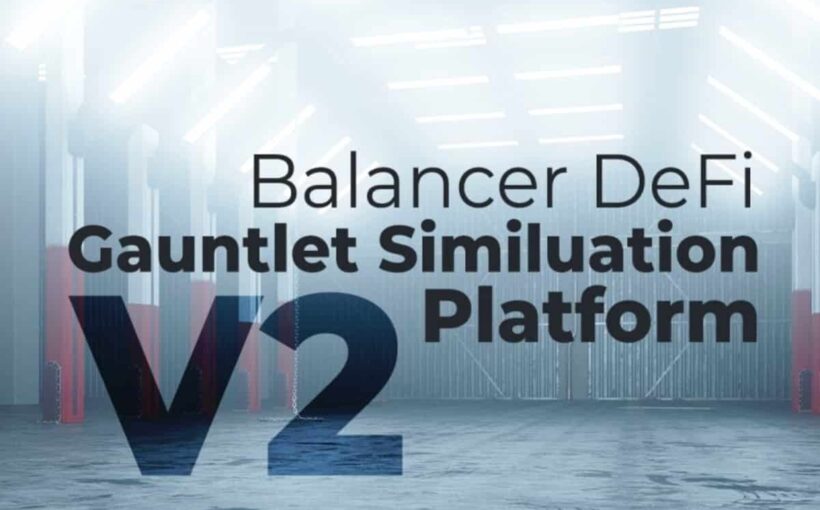To improve the flexibility and competitiveness of its liquidity pools, Balancer has introduced a new core component for its V2 protocol in collaboration with Gauntlet to maximize participating liquidity providers’ returns.
Incorporation Of Simulation Platform To Make Real-Time Protocol Optimization Possible
Surging decentralized finance (DeFi) and decentralized exchange (DEX) participation have seen competition in the accompanying protocol space expand in-kind as liquidity pools seek to attract as much capital as possible. With the switching costs between pools still relatively low, some pool providers are exploring new ways to entice and retain staking capital.
To make liquidity pooling more flexible and rewarding for participants staking their coins, Balancer’s programmable liquidity protocol is adding a new optimization feature in partnership with Gauntlet, a testing and simulation platform that is adding the ability to adjust protocols in real-time.
This integration of Gauntlet’s platform is designed to help Balancer V2 protocol users improve returns by adding a dynamic-fee capability for automated market maker (AMM) pools. Through continuous adaptation, Gauntlet intends to use its model to address risk, heighten overall capital efficiency, and manage rewards for liquidity providers (LPs), adding an extra layer of trust and safety to Balancer’s protocol. Liquidity providers who participate in these next-generation pools will pay no additional fees for the service.
Gauntlet COO John Morrow highlights,
“Balancer’s vision for their V2 pools is perfectly suited for our simulation platform. Dynamic fees allow Balancer to leverage our off-chain automation to improve on-chain LP returns. We’re looking forward to launch, but we’re even more excited for what comes after – our optimization platform gets smarter as we incorporate more live data.”
Liquidity Providers’ Laser Focus On Returns
This focus on dynamic fees comes when DeFi transactions have become increasingly expensive due to surging gas costs on Ethereum’s network. Accordingly, keeping liquidity providers in pools depends on the incentives they receive. By incorporating Gauntlet’s simulation platform, Balancer pool data can be used to adjust protocols in real-time, maximizing participating liquidity providers’ returns
Per Balancer’s CEO Fernando Martinelli,
“The idea of dynamic-fee pools has been top of mind for Balancer for a long time. I believe fixed-fee pools won’t be able to compete with dynamic-fee pools just like taxis can’t compete with ride-sharing apps. It is better for all stakeholders for fees to constantly adapt to the market conditions.”
Unlike V1, Balancer V2 pools will be able to set trading fee parameters by leveraging Gauntlet’s optimization model and the accompanying insights that reflect market conditions collected from connected data feeds. Moreover, as highlighted by Gauntlet’s Morrow, the protocol will deliver more precise recommendations as it collects and analyzes platform data over time.
Trading fees are just one of the benefits being touted by Balancer as part of its V2 release, and the protocol provider also intends to follow up with other valued added tools aimed at facilitating automated-market maker (AMM) solutions resting on top of its liquidity pools.
To keep track of DeFi updates in real time, check out our DeFi news feed Here.
Source: Read Full Article
